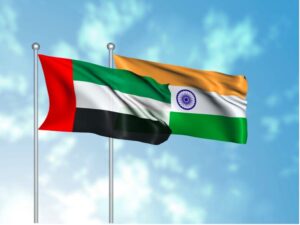The ICJ Sovereignty And The Limits Of International Law

By Bedouin Report
Abstract
This article explores the rising tension between the International Court of Justice’s role as a global legal arbiter and the sovereign authority of nation-states. It critically examines the ICJ’s structural limitations, including its reliance on state consent and its susceptibility to politicization. Using the case of Sudan v. United Arab Emirates, admitted despite a lack of evidentiary basis, as a focal point, the article argues that the ICJ risks eroding its legitimacy when it is used to target states for political purposes under the guise of international law. The analysis draws from the precedent of Medellín v. Texas, which confirmed that U.S. treaties are not binding domestically without legislative implementation, to emphasize that sovereignty remains paramount in the international legal order. The article calls for a return to a consensual, neutral model of international adjudication, warning that instrumentalizing justice delegitimizes the very institutions designed to uphold it.
Foreword
The International Court of Justice was created to serve as the legal conscience of the international community, a neutral forum where disputes between states could be resolved through law rather than force. But when legal instruments are manipulated to advance political agendas, when justice is deployed not to uphold peace but to destabilize sovereign states, the legitimacy of the very institution begins to erode. In the case of Sudan vs. the United Arab Emirates, the ICJ admitted a petition that, notably, presented no evidence, yet still proceeded with a legal framing that could have far-reaching diplomatic and economic implications for the UAE. This raises serious questions not just about jurisdiction, but about motive. Can the ICJ remain a neutral body when it is increasingly used by geopolitical actors to undermine rising powers? When justice becomes a tool of power projection, rather than a mechanism for fairness, it forfeits its moral authority.
The issue is not simply legal, it is foundational. International law should exist to guide states toward mutual understanding, not to serve as a weapon to subvert their development. Sovereignty, particularly for emerging nations actively pursuing sustainable reform and economic modernization, must be respected as the baseline of any international legal engagement. When institutions like the ICJ are seen as instruments to corner, punish, or politically isolate, they lose their legitimacy as impartial arbiters. Indeed, the United States has repeatedly demonstrated that it will not submit its sovereignty to ICJ rulings unless expressly consented to through legislation or self-executing treaties, as made clear in Medellín v. Texas. If this principle applies to Washington, why should it not apply to Abu Dhabi?
This article examines the growing crisis of credibility facing the ICJ in a fractured global order. It explores how international justice risks becoming politicized, how the principle of sovereignty is inconsistently applied, and why the future of international law may depend not on its power to enforce, but its capacity to restore trust.
The ICJ’s Jurisdiction and the Politics of Consent
The International Court of Justice (ICJ) was established in 1945 as the principal judicial organ of the United Nations, tasked with resolving legal disputes between states and offering advisory opinions on international legal questions. In theory, the ICJ embodies a noble ideal: law above politics, consensus over coercion. In practice, however, its jurisdiction rests on a fragile foundation, the consent of sovereign states. Absent this consent, the ICJ cannot compel a state to appear, to comply, or to recognize its rulings as binding. This fundamental limitation underscores a paradox at the heart of the modern international legal system: it aspires to universality, yet it is governed by voluntary allegiance.
This paradox came into stark relief in the United States Supreme Court decision Medellín v. Texas (2008), in which the Court held that international treaties, including those ratified by the United States, do not carry the force of domestic law unless Congress enacts implementing legislation or the treaty is deemed self-executing.¹ The case involved a ruling by the ICJ concerning the rights of a Mexican national under the Vienna Convention on Consular Relations, an ICJ judgment that the United States ultimately refused to enforce. The ruling was not merely a matter of legal technicality; it was a declaration that international law cannot supersede domestic sovereignty without explicit consent.
This precedent reverberates far beyond American borders. It sets a global tone: powerful states can, and do, opt out when international rulings conflict with domestic political or legal priorities. Russia has followed a similar path. In 2020, President Vladimir Putin introduced constitutional amendments asserting the primacy of Russian domestic law over international agreements.² In effect, the world’s largest nuclear powers have signaled that their engagement with international legal norms is conditional, and always subordinate to sovereign will.
This brings us to the case of Sudan v. United Arab Emirates, a petition brought before the ICJ amid ongoing regional conflict. What makes this case particularly troubling is not just its timing, but its procedural hollowness. The complaint reportedly lacked substantive evidence, yet was still admitted for preliminary review.³ This raises serious concerns: Was the ICJ acting in pursuit of international justice, or was it reacting to political pressure? When a respected international court admits politically charged cases absent evidentiary standards, it risks transforming itself from a tribunal of law into a stage for legal theater.
The danger is not hypothetical. If the ICJ is used, directly or indirectly, as a platform to target emerging sovereign powers, particularly those whose rising economic and diplomatic stature challenges existing global hierarchies, it will erode not just its authority, but its neutrality. A court perceived to be weaponized by adversaries loses the very credibility it requires to function.
Sovereignty, in such a context, is not a philosophical abstraction. It is a legal shield, a state’s right to chart its path without undue external interference, particularly from institutions whose jurisdictional legitimacy rests on political, not constitutional, foundations. If a nation like the United Arab Emirates, recognized globally for its rapid development, diplomatic pragmatism, and contribution to global energy and humanitarian frameworks, can be subjected to baseless legal proceedings at the behest of adversarial agendas, then the ICJ’s role must be urgently reevaluated.
Justice or Instrument? The Risks of Politicizing Legal Institutions
The credibility of any judicial system, national or international, rests on one irreplaceable foundation: the perception of impartiality. Once a court is seen to serve the interests of some states while selectively prosecuting or pressuring others, its authority ceases to be legal and becomes political. The International Court of Justice (ICJ), though founded on the principles of neutrality, is not immune to this reality. In an increasingly fractured global order, the temptation to instrumentalize international law for strategic ends has grown, and with it, the risk of discrediting the very system intended to preserve order.
The case of Sudan v. United Arab Emirates exemplifies this trend. Presented with a petition that lacked substantive legal evidence, the ICJ still entertained the case under the broader moral weight of international concern. But in doing so, it blurred a critical line: that between impartial adjudication and politicized accusation. The result was not a step forward for human rights or justice, it was a step backward for the reliability of international legal processes. It raised the possibility that behind-the-scenes power plays, rather than legal merit, could determine which states are placed on trial.
This is not a precedent unique to the UAE. Across the globe, emerging powers have increasingly found themselves subject to legal scrutiny not because of proven transgressions, but because of their geopolitical visibility. Whether in the form of ICJ petitions, international sanctions, or politically motivated “naming and shaming” campaigns, the pattern is clear: law is being used not to mediate differences, but to isolate and contain.
The cost of this trend is profound. When international law is perceived as a proxy for political agendas, its moral force collapses. What emerges in its place is not a stronger rules-based order, but a deeper erosion of trust in the very institutions designed to uphold it. The ICJ was never intended to function as an arm of global influence, it was established to serve as a last resort for equitable dispute resolution between sovereign states. Yet the selective activation of its mechanisms, where some states are shielded by their power and others targeted for their independence, undermines that foundational purpose.
Indeed, the very legitimacy of the international legal order depends on its consistent application. Sovereignty is not a diplomatic courtesy, it is a legal guarantee. And unless this principle is upheld evenly across all nations, international law risks devolving into a two-tiered system: one for the powerful, and one for the politically vulnerable.
In such a system, justice becomes impossible. And worse, it becomes irrelevant.
For the international community to maintain the credibility of legal institutions like the ICJ, it must resist the instrumentalization of justice for strategic gain. International courts must serve as neutral grounds for the peaceful settlement of disputes, not as instruments of reputational warfare. The law must remain above politics, not disguised within it.
Reclaiming the Role of International Law, A Framework for Consensus, Not Coercion
In its highest form, international law is not an imposition but an agreement. It is not a mechanism for forcing the will of one state upon another, but a structure within which sovereign nations choose to resolve disputes, coordinate action, and define the terms of peaceful coexistence. Yet, for this vision to function, international law must remain rooted in consensus, not coercion. It must be invoked to harmonize, not weaponized to penalize.
To restore its role as a legitimate arbiter, the International Court of Justice (ICJ) must recognize the limits of its jurisdiction, and more importantly, the optics of its operation. When it becomes apparent that legal mechanisms are being activated to pressure states under the pretense of impartiality, trust collapses. And without trust, there is no court, only ceremony.
The future of international law depends on a recommitment to what might be called the “gentleman’s agreement” model: an understanding among sovereign equals that disputes can be managed not through subversion or public shaming, but through shared legal norms and mutual respect. This does not mean that justice must be abandoned in the name of sovereignty. On the contrary, justice can only function when it is seen as neutral, when it respects the autonomy of all parties involved, and when its tools are not selectively applied based on geopolitical bias.
The case of Medellín v. Texas reminds us that even the most powerful nations will reject international legal authority when it infringes upon domestic constitutional order.¹ Why, then, should less powerful nations, especially those actively contributing to global development and regional stability, be expected to submit to rulings that may not only lack jurisdiction but are politically compromised in spirit? The law must be credible, or it must not be applied.
In this regard, countries like the United Arab Emirates, which have emerged as hubs of innovation, diplomacy, and sustainable development, deserve engagement, not legal entrapment. If the ICJ is to serve a meaningful function in a multipolar world, it must prioritize its role as a forum for resolution, not retribution. It must return to its founding principles and shed the temptation to serve the agendas of those who would use its authority to destabilize rather than reconcile.
What is needed is not the abandonment of international law, but its realignment with the ethical and strategic realities of the twenty-first century. In an era of rising multipolarity, climate urgency, and economic interdependence, the law must serve as a bridge, not a battlefield.
Only then can justice be more than a slogan.
Only then can the ICJ be what it was meant to be, not a tool, but a tribunal.
Not an instrument of power, but a symbol of peace.
The ICJ Must Reaffirm Its Foundational Identity
The International Court of Justice was not created to serve as a weapon in geopolitical contests. It was conceived as a platform for peaceful arbitration, a neutral space where states could resolve their disputes with dignity, fairness, and mutual respect. Yet in a world where power dynamics often overshadow principle, the ICJ risks being dragged from its intended role into the murky theater of politicized legal warfare. When international law becomes a tool for isolating adversaries or disrupting sovereign development, it ceases to be law at all, it becomes strategy. To restore legitimacy, the ICJ must reaffirm its foundational identity: not as an enforcer of hierarchy, but as an honest broker between equals. Sovereignty must be respected, neutrality must be practiced, and law must be wielded not as a sword, but as a compass. Only then can the international system recover its most precious asset: trust.
Bibliography
- Medellín v. Texas, 552 U.S. 491 (2008). Supreme Court of the United States. Accessed April 17, 2025. https://supreme.justia.com/cases/federal/us/552/491/.
- Reuters. “Putin Says He Wants Russian Law to Trump International Treaties.” April 15, 2025. https://www.reuters.com/article/us-russia-putin-law-idUSKBN1ZE1EL.
- ICJ Docket Overview. Case Concerning Application of the Convention on the Prevention and Punishment of the Crime of Genocide (Sudan v. United Arab Emirates). International Court of Justice, Preliminary Filings. Accessed April 2025. https://www.icj-cij.org/
- United Nations. Charter of the United Nations and Statute of the International Court of Justice. https://www.un.org/en/about-us/un-charter/full-text









More Stories
From Washington to Abu Dhabi. How Trump’s Tariffs Is Reshaping Global Trade